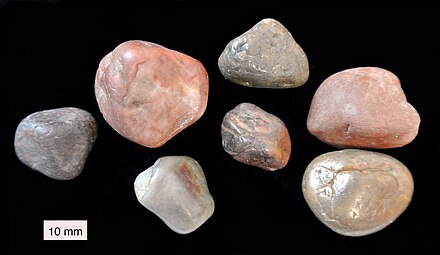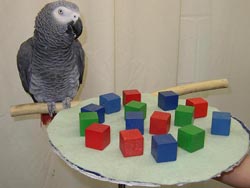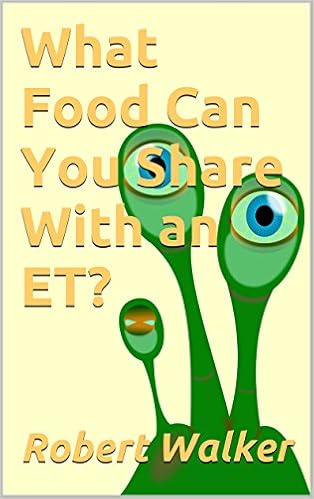So, you are invited to a dinner by extraterrestrial hosts. Do you accept the invitation? And if so, which foods and beverages would be safe to eat? And, could you actually live long term on ET food? Or the other way around, if you have an ET guest, what food could you safely serve for them to eat?
First, it's not likely that you would enjoy a dinner served in a sauce of liquid nitrogen or liquid methane :). So, let's assume that they are organic carbon based lifeforms from an Earth-like world or at least an environment with Earth type temperatures and conditions (including perhaps living in oceans of icy moons).
Also, some microbes are able to make use of just about any organics. Some indeed can manage just fine on CO2, some minerals and sunlight - any ETs like that would be easy creatures to satisfy at dinner time :). But humans need more than that. Let's assume they are reasonably similar to Earth life. That they survive by eating other plants or animals or whatever the equivalent is on their planet, are not "prime producers".
Is this food tasty and nutritious. Or is it poisonous? Or tasteless and inedible, like trying to eat sand, goes through your body and is rejected?
(You can get this article as a kindle ebook)
WHAT IF YOUR HOST HAS A COMMON ORIGIN WITH EARTH LIFE
This improves the situation a lot, and is not impossible. For instance if your host or guest comes from the oceans of Europa or Enceladus (we don't know enough yet to rule out the possibility of a non technological civilization in those oceans) - there is a small possibility of a shared origin, life exchanged in the early solar system.
Or if the theory that Earth originated around an earlier star turns out to be true, and you find another planet seeded by the same star, again you could have a common origin with your host or guest.
And then - for now, let's suppose that multicellular life developed in the same way in both planets - I'm not sure how you can assign a probability to that, but just let's suppose it does.
Then again, if your host is a herbivore, or has a specialist diet, or both, e.g. a koala bear who loves eucalyptus leaves and little else, or a giant panda, sloth or elephant, you'd be limited in what you can share with them.
![]()
 Three toed sloth
Three toed sloth ![]()
So, it would help if you are both not too specialized in your eating habits. A fructivore would be okay, since humans do quite well on a diet of just fruit at least if you don't do it for too long or mix in a few other things in your diet.
And your host may offer you some rocks on the side, to eat to help digest your food, but I imagine you could politely decline the offer :).
Gastroliths from Jurassic period dinosaurs. If your host is a bird or frog, or some such, it might well offer you some rocks on the side.
So if they are fructarian or omnivorous, or carnivores, their food could potentially be nutritious to us. But just like many Earth life, and more so, it could also be harmful.
For instance, it could cause an allergic reaction Allergy causes. Or indeed, many Earth berries are food for some animals but poisonous for humans. E.g. "deadly nightshade" or wisteria seeds.
The flowers of Atropa belladonna - photo by Tom Oates at wikipedia also known as deadly nightshade. Its sweet tasting berries are poisonous to humans and many animals. However, pheasants, thrushes and blackcaps have been seen to eat their berries.
Berries of bittersweet, or woody nightshade. Also poisonous to humans, though bitter to the taste.
Even if your host is as closely related to us as a pheasant or a blackcap, the food they eat may still be deadly for us.
If your host is gobbling down some tasty berries or seeds, even if they are an Earth species, actually evolved here on the Earth, doesn't at all mean it is safe to eat for you. Even on the Earth if, say, a parrot is gobbling down tasty seeds, it doesn't mean they won't kill you. 11 Toxic Wild Plants That Look Like Food
And the other way around, there are many foods that are edible by humans but poisonous to other animals and birds. See for instance this list of common foods that you shouldn't feed to a grey parrot, including chocolate, nutmeg, and avocado, so you'd need to take care what you offer your ET guest also.
Gray parrots like Alex the gray parrot here, can be poisoned by many foods that humans enjoy such as chocolate, nutmeg, and avocado.
So you'd need to take a great deal of care about what you eat. But you may be able to survive on some of the same food (the later your common ancestor with them, the better).
Unless, that is, you are both results of seeding by the extraordinarily advanced Star Trek Ancient humanoids :).
Some of this food could easily be toxic to humans, or vice versa, even if we are all biologically closely related. In the Star Trek universe then they have an underlying hypothesis that all the planets with the various humanoids on them were seeded by the Ancient humanoids, so it's reasonable that they all use the same amino acids as Earth life. That could also be the situation if the ETs and us have a common shared microbial ancestor, e.g. all our planets seeded by life around earlier stars that pass through the forming nebulae.
In Star Trek they go one step further (rather improbably) that the humanoids are so closely related they can actually interbreed (again a result of the amazing mastery of the processes of evolution of the ancient hominids, able to seed the worlds with just the right organisms to ensure that hominids would co-evolve on all these worlds pretty much simultaneously several billion years later), which would suggest that they can eat just about anything we can. Still, even then, they need to take some care. Humans vary a fair bit in their tolerance to foods and in allergic reactions that can be deadly. A Thanksgiving Look At Great Meals In Star Trek History
IF YOU ARE INDEPENDENTLY EVOLVED - WHY THEIR PROTEINS MAY NOT BE NUTIRITOUS FOR HUMANS
Humans need amino acids to stay healthy. When we digest food, any proteins are broken down first into polypeptides, then peptides, then into their component amino acids. Protein Digestion and Absorption Process - Video&Lesson Transcript | Study.com
So, it seems that what matters are what the amino acids are in the food. There are nine essential amino acids that humans need in their food. Essential amino acid
There are an estimated around 4,000 possible biologically reasonable amino acids in one computer search. Alien Life Could Use Endless Array of Building Blocks. And many of them occur in nature. Out of those, life uses 20 (or 21 or 23 depending how you count them) (Amino acid). Of course many of those won't occur in nature - but Earth life also uses some amino acids that don't occur naturally either. Also other searches might change or refine those numbers.
It's clear that there are many more amino acids than those used by life. For instance, 52 amino acids have been identified in the Murchison meteorite. Amino acids in meteorites.
So, the food is likely to be missing essential amino acids. It's also likely to include extra amino acids that our body is not used to.
And then, the amino acids are asymmetrical, and any of those amino acids can be in either its left or right form to build the proteins. We can only use it in its "left hand" form.
OTHER ESSENTIAL NUTRIENTS
Humans also have many other essential nutrients e.g. vitamins, that have to be in our food or eventually we'll die. Essential nutrient
Their equivalent of our vitamins, for instance, instead of being health giving, may be Antimetabolites for us - drugs that interfere with the normal functioning of the cell.
And vice versa, our vitamins might interfere with their metabolism equally.
And the trace elements we need might some of them be deadly to them and vice versa.
IF IT IS NOT RELATED TO EARTH LIFE
So, unless related to us, it's not going to be able to give us all the amino acids and vitamins and other essential nutrients we need to survive, bar an extraordinary coincidence.
Barring an extraordinary coincidence, it wouldn't have toxins that are targeted at humans or animals specifically. But there are many things that are poisonous for us, so it doesn't need to specifically target vulnerabilities in humans to do that.
For instance, maybe your ET just loves to eat hydrogen cyanide, or arsenic, or perchlorates. These are delicacies for them, but deadly to us.
COULD BE TASTY HOWEVER
Apart from that - well it could be tasty even if not actually nutritious. And it could have carbohydrates to give you energy.
SWEETENERS
Sugars seem quite possible.
Glucose, the form of sugar you have in fruit juice,
Seems reasonably possible they'd have something like that, simple carbohydrates that we may be able to eat. So you'd be able to use ET food as a source of energy at least.
At least you could hope to eat the icing of their cakes.
As other possibilities, maybe it naturally produces an artificial sweetener, e.g. Aspartame which is a combination of two amino acids.
Or Saccharin
Or lead acetate, which of course would give you lead poisoning if you used it a lot.
See Sugar substitute
TASTY POISONS
Tasting nice is no guarantee that it is good for you, or indeed not poisonous. E.g. antifreeze, as simple as ethanol chemically, just ethanol with an extra hydroxyl grouping, Ethylene glycol, tastes sweet.
And is so simple you can easily imagine an ET food including it.
But it is moderately toxic, and because it is sweet, sometimes children for instance drink it in large quantities, which can lead to Ethylene glycol poisoning and death.
ALCOHOL
Ethanol is simple enough, so good chance you can at least share a drink with your hosts. That is,, if they happen to also like alcohol, which of course depends on their metabolism.
Romulan Ale
But maybe they like methanol which is poisonous to humans.
As little as six to ten millilitres (depending on your body mass) can cause permanent blindness and death.
The lethal dose of pure methanol is estimates to be 1-2 mL/kg (Jacobsen 1986); however, permanent blindness and death have been reported with as little as 0.1 mL/kg (6-10 mL in adults) (ATSDR 1993).
OTHER CONDIMENTS
Of course also salt is tasty - sprinkling ET originated salt (maybe with trace elements) on your food might well be fine unless it contains mercury, arsenic or some such.
So there might well also be tasty condiments from ET planets.
But you'd need to be careful, for instance, salt deposits on Mars consist of sulfates, chlorates and perchlorates with almost no chlorides. The perchlorates, particularly, are poisonous to humans.
A Salty, Martian Meteorite Offers Clues to Habitability - scoop marks from Curiosity where it took a sample that confirmed perchlorates or chlorates in the dust - previously discovered by the Phoenix rover in 2008
So, if your host offers you salt, you need to ask "what kind of salt?". In case they have a taste for perchlorates, for instance, as a condiment.
COULD CAUSE ALZHEIMERS OR OTHER TANGLE DISEASES
It could also contain chemicals that are similar enough to ones our body uses that it takes it up as food - but they are not quite identical.
Example:
L-serine, resembles
BMAA which is created by green algae.
It’s been suggested that BMAA can be misincorporated to cause tangle diseases like Alzheimers.
So - if it is similar enough so that you find it tasty - might be that your predilection for ET food gives you Alzheimers in your later life.
BE SURE TO STERILIZE YOUR FOOD AND NOT SIT IN THE SAME ROOM AS YOUR ET HOST - BEST - USE TELEROBITIC AVATARS
As well as that, you'd need to be sure to sterilize the food because the biggest danger I think would be from ET microbes. Which you might also get from the ETs themselves.
You might think that ET microbes would have no effect on a human, but the thing is - that though they wouldn't be adapted to us, our immune system also wouldn't be adapted to them. Just as you can have e.g. artificial implants that your body doesn't reject because it doesn't trigger your immune system, so also ET life could quite possibly invade your body and your immune system doesn't even notice it because it doesn't produce the chemicals characteristic of life. This has been suggested as a motivation for developing synthetic life in the laboratory - that you could create implants that the body wouldn't recognize as life and so wouldn't reject. See Xenobiology: A new form of life as the ultimate biosafety tool
Joshua Lederberg who took a special interest in this said about Mars life, which might not produce the same peptides and carbohydrates as Earth life:
"On the one hand, how could microbes from Mars be pathogenic for hosts on Earth when so many subtle adaptations are needed for any new organisms to come into a host and cause disease? On the other hand, microorganisms make little besides proteins and carbohydrates, and the human or other mammalian immune systems typically respond to peptides or carbohydrates produced by invading pathogens. Thus, although the hypothetical parasite from Mars is not adapted to live in a host from Earth, our immune systems are not equipped to cope with totally alien parasites: a conceptual impasse"
Then these microbes themselves, once they are able to make a home on and in your body, may make various chemicals that are toxic to you. Or interfere with your body functions. And the other way around, your microbes may make chemicals toxic to them.
Or another thought - just to think about - might they even just slowly eat you? What if you are edible to some of the microbes, general purpose feeders - and your cells don't realize what's going on? They will respond to the trauma but their reaction may have no effect on the ET microbes that just gobble up everything your cells create.
Bowl of yoghurt, photo by Schwäbin
If your host offers you live yoghurt, be sure to sterilize it first. Unless you have proved that our microbes and theirs are compatible first.
But as well as that - after visiting an ET and sharing a meal with them, your lungs, sinuses, eyes, stomach, the surface of your skin, and every accessible part of your body may be inhabited by trillions of ET microbes that your body has no idea needs to be eliminated. Microbes that are used to living on the skin and inside the stomach etc of an ET host that has a different biology from you.
And of course would be the same likewise for them, they'd surely find that at least a few of the hundred trillion microbes in ten thousand species that make human bodies their home have jumped over to them and are inhabiting their body as well.
They may be well behaved bacteria, perfect symbionts for the ET. But are they going to be as well behaved for you with the different biochemistry of your body, which may not recognize them as life?
ETS THAT CAN GROW IN ABIOTIC CONDITIONS FROM STERILIZED SEEDS LIKE PLANTS
If the ETs are like some plants and can be sterilized as seeds, then grown in abiotic conditions from then on, (so long as you supply the right nutrients artificially) they probably sterilize themselves of all microbes before encounters with beings from other planets (including of course any microbes they picked up from visits to previous planets).
(public domain clip art from pixabay)
There are lots of science fiction stories about intelligent plants. TV Tropes.
Most of them don't have much hard science behind them. But there is research showing that plants have a form of intelligence and memory (New Yorker article about scientific discussions of intelligent plants). Also for a philosophical background see Plants as Persons - A Philosophical Botany.
Could there be intelligent plant ETs?
It might also be that some ETs belong to other "kingdoms of life" that we don't have here, that for one reason or another, like plants, though complex in structure, don't need to have lots of symbiotic microbes to keep alive.
OTHER ETS - PROBABLY THEY'D USE, ROBOTIC AVATARS
Apart from that, I think that most ETs would use robotic avatars when meeting other ETs "in the flesh" for the first time. Operated by telepresence from a spaceship close by to have the least latency possible.
Or else just high definition 3D imaging, like the "holographic doctor" in Star Trek Voyager.
EVOLVING MOVIE CONSENSUS
For some reason I don't think any of these movies that depict ETs suggest any problems at all with ET microbes. After all they are written by movie script writers not scientists.
You get a kind of evolving "Movie reality consensus" where people accept things in movies because they have been exposed to them in previous movies so evolving idea of what an ET encounter might be like by building imagination upon imagination which probably gets us further and further away from what the reality would be like. Especially since there have been no actual ET contacts to build on to get a more accurate picture in the movies.
SO IN SHORT
- ET food just possibly might be nutritious if we have a common ancestor
- Otherwise, almost certainly missing essential amino acids - take along food supplements
- Could be sweet though, and able to use it as a source of energy.
- May well be poisonous even if we have a common ancestor
- Tasty doesn't mean it is safe
- Could easily have tasty condiments and some of them might be safe for humans
- Whatever you do, sterilize the food and make sure you have a microbial barrier between you and your hosts, or better, use telerobotic avatars - until you have analysed the trillions of microbes that live on their bodies and shown they are harmless to humans, and vice versa.
I think the odds are very high that some food or other would kill you or make you very ill. But that if you prescreen it, there's a reasonable chance that some of it, maybe with suitable treatment, might be tasty. Especially simple things such as sweet food.
WHAT IF WE ALREADY HAVE THE "BEST POSSIBLE SET OF AMINO ACIDS"?
You might think, we don't need a primordial"Ancestral human" to seed our planets.
What if we've already got a "best solution", that no form of life can be better than DNA? See for instance: Did evolution select a nonrandom "alphabet" of amino acids? and A Realistic Model Under Which the Genetic Code is Optimal.
Is it possible that DNA based life is the very best life you could possibly have in the universe and that planets necessarily evolve to DNA based life?
Well the thing is, you can have more than one "best solution" - common thing in mathematics.
Simple case, if you start wherever you are right now, and continually walk upwards following the steepest upward path you can find, until you can go upwards no more. If you follow this approach, then sooner or later you will reach a highest point, a point than which you can go no higher. But it's extremely unlikely that you end up on the top of Mount Everest if you do that. Chances are it is just some local hillock. It's a best solution to the problem of getting as high as you can, but only a local best solution.
Even if you take a wider view and allow yourself to go down as well as up and head towards the highest mountain you can see within your view, then again, highly unlikely that you reach the highest mountain in your area - when you get to the top, chances are you can see an even higher mountain in the distance.
And what if you try to climb the highest mountain on your continent?
One challenge in mountaineering is to climb the highest mountain in every continent. Usually thought of as seven, but some add Mont Blanc and Puncak Java to make nine. See Seven Summits.
Suppose you were an aborigine living in Australia before the Europeans arrived. It would be totally natural to assume that Kosciuszko is the highest mountain in the world.
Mount Kosciuszko from the East - the highest mountain in the whole of Australia. But it would count as a minor peak in the Alps (half the height of the Matterhorn) and you'd hardly notice it at all in the Himalayas - only 2,228 meters high.
It's totally optimal. If you climb up and up, then when you get to the top of Mount Kosciuszko then you have got as high as you possibly can, and there is no higher mountain anywhere in the entire world as far as you know.
Similarly if you lived in North America, would be totally natural for the American Indians, before the Europeans again, to think that Mount McKinley is the highest mountain in the world.
Mount McKinley. It's pretty high, but at 6,194 meters high it's only the third highest of the seven summits, Mount Everest is higher at 8,848 meters, so also is Aconcagua in South America, at 6,961 meters
So in the same way, our DNA based life may well also be optimal too. For instance it could easily have evolved to make more amino acids than it does, or different ones, but never did. Instead has redundant ways of making the same amino acids.
That would seem to suggest that life is using an optimal set of amino acids. But that just means it's a local optimum. How big a "continent" of the solution space of life possibilities is it optimal over?
The thing is that evolution has to take many short cuts, and it can't explore all possibilities. This is analogous to the way that you solve the traveling salesman problem. If you start with a random solution and then keep optimizing it, you'll get a local optimum, but not the best possible.
There's no known algorithm to get the best possible solution in a realistic time once you have a large number of cities. But lots of local optimums that are pretty close and "good enough".
However each time you try this process of simulated annealing, you will end up with a different route. And none of these solutions can be improved any further unless you raise the temperature very high and try again.
So in the same way - if its true that Earth life is optimal which it might be - still there could easily be other optimal solutions that are completely different in structure from Earth life. There's just not been enough time to explore all the possibilities, and also once DNA life got underway and had taken over the Earth any other attempts exploring other biochemistry would quickly be eaten while they were still at the almost alive stages of a PNA or TNA soup or autopoetic cells, or the later clumsily replicating stages that Earth life surely went through at some stage :).
There's lots of research now suggesting that life could evolve that uses different amino acids. This one for instance Artificial DNA Can Do WHAT?, see also Synthetic biology: New letters for life's alphabet
There are also ideas for creating a whole new lifeform based on Xeno nucleic acid - i.e. not using RNA or DNA at all, but a polymer with a different backbone that has the same capability as RNA and DNA to carry information, Xenobiology: A new form of life as the ultimate biosafety tool
Most astrobiologists think that it's possible that there may be many different kinds of biochemistry. What Is Life—and How Do We Search for It in Other Worlds?
And many think that our own biology started with a simpler more robust form of life, such as PNA, or TNA, or even a hodgepodge molecule with mixtures of several different backbones Before DNA, before RNA: Life in the hodge-podge world
As points in favour of multiple origins that differ from each other, you could mention:
- The hugeness of the solution space, with a total of at least 52 naturally occurring amino acids in meteorites and probably many more available that life could synthesize, with around 4000 biologically reasonable amino acids according to one computer search.
- Total impossibility of traversing the entire solution space even with billions of years of evolution in a global ocean.
- Once DNA life takes off, once it is so pervasive you find it everywhere, it would be almost impossible for other biochemistries based on a different language to get started, because they would just be eaten by the further evolved DNA in the early stages when they are just autopoetic cells or whatever
- The complexity and intricacy of the mechanisms of the modern cell, common to all Earth life.
- The Limits of Organic Life in Planetary Systems (National Research Council)
- Hypothetical types of biochemistry (wikipedia)
- Cosmic Biology: How Life Could Evolve on Other Worlds, Louis Irwin and Dirk Schulze-Makuch
- Many Chemistries Could Be Used To Build Living Systems, William Bains
- Life as We Do Not Know It: The NASA Search for (and Synthesis of) Alien Life - Peter Ward
- Weird Life: The Search for Life That Is Very, Very Different from Our Own - David Tooney
And I mention a few other ideas and sources as well in my:
As Philae Awakes - Where Might Life Hide In Our Solar System?
This answer uses material from my answer and some other answers to the quora question: Hypothetical scenario; What are the odds that alien food from an Earth type planet would kill us?
DO SHARE YOUR THOUGHTS IN THE COMMENTS
What do you think about these ideas?
Would ETs (from Earth-like habitats) like sugar, or alcohol, or salt?
Would ET food be edible? Or Poisonous? Tasty? Any other ideas for ET food?
Also as usual do be sure to point out any mistakes, however small, in this article. Hope you enjoy it :).
HOW TO GET THIS ARTICLE AS A KINDLE EBOOK
You can get it here:
What Food Can You Share With an ET? (Amazon)
SIMPLE QUESTIONS - SURPRISING ANSWERS
This is also one of the answers in my new kindle book: Simple Questions - Surprising answers - In Astronomy
You can read it on any device, not just a kindle, and also, read it with the kindle cloud reader in your web browser.
ONLINE POSTS
You might like my other posts on Quora

Robert Walker's posts - on Quora
And here on Science20

Robert Walker's posts on Science20
KINDLE BOOKSHELF ON MY AUTHOR'S PAGE
And I have many other booklets on my kindle bookshelf
 My kindle books author's page on amazon
My kindle books author's page on amazon














Comments